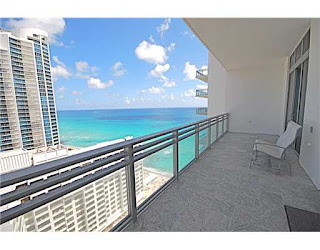By SUSAN STELLIN
Published: March 22, 2012
ONE of the advantages of being a renter is that when the roof starts leaking or the hot-water heater dies, the repair is not your responsibility — in theory, that is.
Readers’ Comments
Readers shared their thoughts on this article.
In reality, some tenants have to go nine rounds with their landlord to get a plumber or a handyman on the scene. Others decide to live with peeling paint, or do without an air-conditioner, to avoid rocking the boat.
Although New York City offers help to tenants who have trouble getting repairs addressed, that assistance is generally more useful for serious problems, like a lack of heat or hot water, than it is for a dripping faucet. And housing court, the renter’s remedy of last resort, has become a less attractive option in recent years because it can land you on a blacklist used by tenant-screening companies to weed out applicants for rentals.
But there are ways to nudge a landlord to address non-urgent maintenance issues, starting with an e-mail or letter describing the problem, so that you have a record of the complaint. An emergency like a waterfall coming through the ceiling obviously warrants a phone call, but it’s still worth following up in writing and mentioning your willingness to provide access to the apartment.
“The main goal is to get the repairs done, so you want to be as clear and cooperative as possible,” said Karen Bacdayan, a housing law specialist with the Brooklyn branch of Legal Services for New York City, which offers free legal advice to low-income clients.
Lawyers who represent tenants recommend taking pictures of problems like mold on the ceiling, and keeping a log listing the dates and times when the heat or hot water wasn’t working. If the heat is not functioning properly, note both indoor and outdoor temperature. New York City requires landlords to heat apartments to at least 68 degrees between 6 a.m. and 10 p.m. when it is cooler than 55 degrees outside, and to at least 55 degrees between 10 p.m. and 6 a.m. when the outside temperature falls below 40.
If your landlord isn’t responsive to either an emergency or a serious maintenance problem, your next option is to call 311, the city’s citizen service center.
“When a complaint is called in to 311,” said Vito Mustaciuolo, a deputy commissioner for the New York City Department of Housing Preservation and Development, “operators enter the information directly into our database and the caller is given a complaint ID number.”
The department enforces the city’s housing maintenance code and New York State’s multiple-dwelling law, so your problem has to be addressable under those regulations. Some problems that are: inadequate heat or hot water; electricity and gas malfunctions; mold; leaks; peeling paint; plumbing or sewage issues; rodent or insect infestations; and safety hazards like broken locks or window guards.
A problem that is not: a broken dishwasher or washing machine.
The department’s manual, “The ABCs of Housing,” available online, addresses repair issues.
When in doubt, Mr. Mustaciuolo said, call 311 and ask if your problem qualifies for city intervention. He notes that the city receives more than 600,000 housing complaints every year.
But give your landlord a chance to respond before you ask for city help. Frank Ricci, the director of governmental affairs for the Rent Stabilization Association, a trade group for property owners, said some tenants dial 311 before even trying to deal directly with a landlord.
“There’s a fair amount of people who think they should call the city or the state when something goes wrong,” Mr. Ricci said.
Once a complaint is filed, the city will contact the landlord or the building’s managing agent, and may send out a housing inspector who can issue a violation. You can look up your address on the department’s Web site to see if any open violations or complaints were filed in the last year; you can also check the status of a complaint.
Depending on the violation, the landlord has 24 hours to 90 days to correct the problem. For immediate hazards like no heat, if the landlord does not act, the city might handle the repair and bill the landlord.
But for less urgent repairs, or for situations in which the city does not intervene, you may have to take matters into your own hands.
“Lots of landlords just ignore violations,” said James B. Fishman, a founder of Fishman & Mallon, a law firm that specializes in consumer and tenant law. “The next step would be to consider an H.P. action, which is a tenant-initiated lawsuit in housing court.”
It costs $45 to file an H.P., or Housing Part, action; the advocacy group Housing Court Answers has a guide and video on its Web site explaining the process. It also operates a hot line, at (212) 962-4795. You can file a Housing Part action on your own, or with other tenants in your building — if, for instance, your landlord has refused to fix the elevator.
Mr. Fishman said he had never seen an H.P. action show up on a tenant-screening report, but he and other lawyers advise tenants against withholding rent as a way of getting maintenance problems addressed, because of the risk that the landlord will sue to collect back rent or start eviction proceedings.
A suit by a landlord is the kind of thing that can end up on the dossiers of tenant-screening companies.
“We get calls all the time from people who can’t get apartments because of this,” said Louise Seeley, the executive director of Housing Court Answers.
The threat of that blacklist is one reason lawyers caution against paying for repairs yourself and deducting the cost from your rent, unless you have received written permission from your landlord.
Jeffrey McAdams, a tenant lawyer in Manhattan, said that you could be sued later for not having paid your full rent. But he emphasized that tenants should not feel they have to live with a problem like a plumbing backup, just because they might have aggravated the situation.
“Part of living in an apartment is that things break,” he said. “Other than an extreme case, it’s the landlord’s responsibility and the landlord’s expense to make the repairs.”
















































